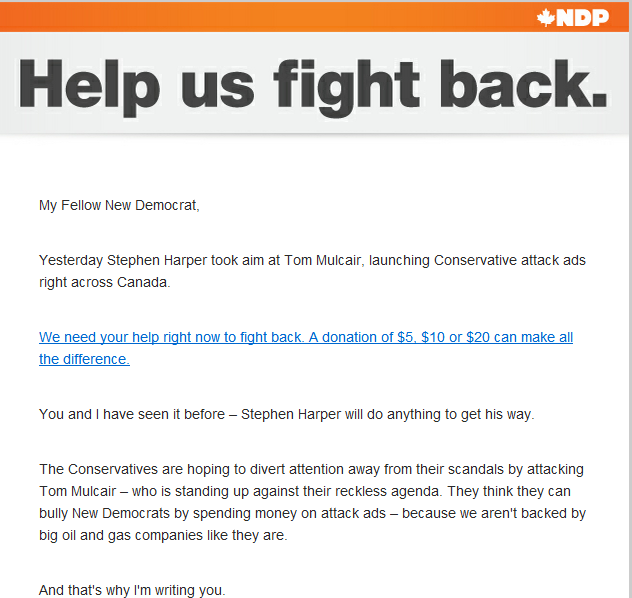Using the TPP to Renegotiate and Expand NAFTADana Gabriel
Infowars.com
June 26, 2012
-
The Council of Canadians who continue to be vocal opponents of NAFTA and other trade deals that follow the same flawed template, are strongly against Canada’s entry into the TPP. Its national chairperson, Maude Barlow warned that this, “could force Canada to change its drug policies, its copyright policies, its environmental and public health rules – all without going through the normal parliamentary process.” The organization cautioned how, “TPP negotiations could mean up-front concessions in a number of areas, including intellectual property rights, where the U.S. is making considerable demands on TPP member countries that will undermine access to essential medicines so that its multinational drug firms can increase profits.” They also emphasized that, “Supply management, which guarantees fair wages and stable prices for farmers in non-exporting sectors, is too valuable to Canada to sacrifice on a negotiating table.” Others have pointed out that it is important as a buy-local program, as well as key to Canada’s food security and food sovereignty. The Council of Canadians maintains that, “the TPP is by and large a NAFTA renegotiation but on U.S. President Obama’s terms.”
Not surprisingly, the Canadian Council of Chief Executives, an organization that lobbies the government on behalf of the country’s largest corporations, welcomed the announcement that Canada has been invited to join the TPP talks. Its President and CEO John Manley stated that, “By signing on to the TPP, the federal government has taken an historic leap toward securing Canada’s long-term strategic interests in the Asia-Pacific region.” The U.S. Chamber of Commerce have also applauded Canada and Mexico’s entry into the TPP. Its President and CEO Thomas Donohue argued that, “negotiating the TPP together is an excellent strategic decision for North America.” Back in January, the Council of the Americas explained how, “it makes little sense for the United States to enter into potentially significant trade arrangements with countries in the Pacific region without our NAFTA partners.” They view the TPP as a “promising vehicle to support the updating of our bilateral and trilateral trading relationships within North America to the high standards of twenty-first century free-trade agreements.”
In his article, Will invitation to join TPP talks lead to NAFTA 2.0?, Peter Clark one of Canada’s leading international trade strategists concluded that, “A successful TPP would allow NAFTA to essentially be re-opened without the optics of it actually being re-opened.” He went on to say, “The business leaders in all three NAFTA countries, as strong supporters of TPP invitations to Canada and Mexico, understand that after nearly 20 years, modernization of NAFTA is needed. For rules of origin, supply chain management and manufacturing integration.” Clark stressed that, “All Canadians should be clear about this – TPP is the negotiation of NAFTA 2.0 and it could have major implications for Canada-USA trade relations.” Meanwhile, both countries are implementing the Beyond the Border Perimeter Security and Economic Competitiveness Action Plan which has been described as the most significant steps forward in U.S.-Canada cooperation since NAFTA. Christopher Sands of the Hudson Institute observed how, “The TPP negotiating agenda is at once similar to the bilateral agenda that Canada and the United States are pursuing, and also more ambitious and multilateral.”
-
http://www.infowars.com/using-the-tpp-t ... and-nafta/===
Canada’s entry into Trans-Pacific Partnership called “humiliating”By Stuart Trew, Tuesday, June 26th, 2012
-
The United States Trade Representative (USTR) is “playing hardball,” he says, and “has brazenly stated that Canada and Mexico will not even be granted observer status at the July or September rounds. Presumably, they will not be granted access to the text either, until after the internal U.S. review period is over…
“This means that during the next two rounds, the nine current members will have the opportunity to reach consensus on areas where they know that Canada has sensitivities, notably agricultural market access, drug pricing, cultural industries, and copyright protection. It also means that U.S. lobbyists, representing everything from brand-name drugs, agricultural exports, motion pictures and softwood lumber, will have a free hand to try to insert their own poison pills ahead of Canada entry.”
Yesterday in the Toronto Star, Michael Geist of the University of Ottawa also commented that, “The price of admission [to the TPP] was steep — Canada appears to have agreed to conditions that grant it second-tier status — and the economic benefits from improved access to TPP economies are likely to be relatively minor since we already have free trade agreements with four of the 10 participants.”
Geist and Sinclair both point out that Canada and Mexico, which were invited to the TPP table by U.S. President Obama during the G20 meeting last week, will not have the veto authority of the other nine TPP members to stop chapters from being closed. Geist offers a concrete example of how that might affect the copyright negotiations:
This condition could be used to stop Canada from joining forces with another country on a tough issue during the late stages of the negotiation. For example, Canada and New Zealand both have copyright terms that last for the life of the author plus an additional 50 years. The U.S. has proposed that the TPP mandate a term of life plus 70 years. While Canada and New Zealand might be able to jointly block the extension, the U.S. could pressure New Zealand to cave on the issue and effectively force Canada to accept the change.Sinclair ends his article with a challenge to Canadians to reject the TPP negotiations outright:
In its desperate bid to be part of these talks, the Harper government has left Canadians with a clear choice — to take an agreement shoved down our throats by the U.S. and its powerful corporate lobbies or to leave it. Given the obvious costs, the only dignified option is clear.-
http://canadians.org/blog/?p=15908





